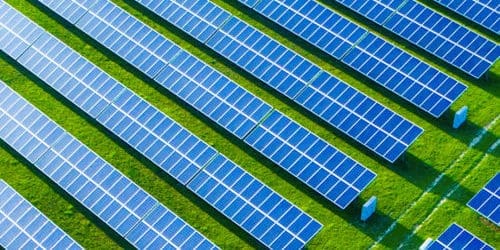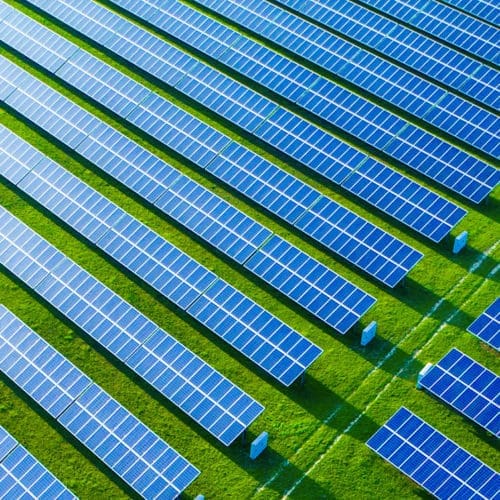Banking on Hydrogen – Green Hydrogen Production in KSA Backed by 23 Financial Institutions
June 2023NGHC Green Hydrogen Facility
Saudi Arabia has openly acknowledged that as a leading global energy producer, it must make significant contributions in the global fight against climate change. In this regard it has committed to having net zero emissions by 2060, and to have an impressive 50% of its power generated from renewable resources by 2030.
To accelerate Saudi Arabia’s green energy transition and meet its ambitious climate targets, Saudi Arabia has committed to investing in new energy sources and recently the NEOM Green Hydrogen Company (NGHC) announced that construction has begun on the world’s largest commercial scale production site for Green Hydrogen.
The project has received significant support from the investment community, securing $8.4 billion worth of financing from 23 local, regional, and international banks and investment firms.
NGHC’s facility will utilise up to 4GW of solar and wind energy to produce 600 tonnes of carbon-free hydrogen per day, in the form of green ammonia. The facility is expected to be operational by the end of 2026. The NGHC has also signed a $6.7bn, 30-year offtake agreement with Air Products, a leading global hydrogen supplier (who has also been commissioned to design and construct the facility under an EPC Contract).
Why Now?
Hydrogen has long been touted as the abundant, clean burning, fuel of the future, but difficulties transporting it, the use of fossil fuel in its production and the expenses associated with its production, have hindered its wide spread adoption.
However, many of these challenges have now been overcome. Renewable energy is now more efficient and cost effective which means hydrogen can be separated at commercially reasonable rates and without the use of fossil fuels, eliminating the emission of greenhouse gases during production. The transport and storage problems have also been largely solved by combining Hydrogen with Nitrogen (a naturally occurring abundant gas) to create ammonia, a substance which can be transported and stored as safely as LNG.
And now, with increased production capacity globally, the per kilo rate for green hydrogen is expected to continue to fall, making it a more competitive alternative to fossil fuels and a fuel which can be utilised by many of the industries which cannot be easily electrified, reducing their carbon footprint.
Future Proof
While this is the first announcement of a major green hydrogen production facility, the Saudi Green Initiative has indicated that it intends on establishing production facilities to produce four million tons of clean hydrogen per year. For perspective, the United States is currently the leading green hydrogen producer and it produces 500,000 tonnes annually (although this is expected to increase to two million tons annually by 2030).
In a macro sense, the commitment to hydrogen production is a particularly interesting move for the Kingdom for three reasons:
(1) a consistent hydrogen supply will allow KSA to decarbonise the industries which it proposes to create (for example at Oxagon – a re-imagined industrial city at NEOM);
(2) the deadline for many countries who have committed to going carbon neutral is fast approaching and the reality is, an alternative type of fuel is needed in order to meet their proposed Net Zero targets. While there is some debate as to what alternative fuel source is needed, Saudi Arabia (and 23 banks and financial institutions) are betting that it will be hydrogen. If this is the case, Saudi Arabia can position itself to be a leading global hydrogen supplier.
(3) Saudi Arabia’s giga projects will require the creation of power sources, and while most of the electrical needs of these projects is proposed to be met by wind and solar, the ability to produce and then burn the green ammonia produced by green hydrogen plants (which turns back into air and water when burnt – so doesn’t pollute) will mean that these projects are not dependant on a grid connection and can still operate if the wind isn’t blowing, or the sun isn’t shining.
The Grass looks Green
With the space and natural resources for the renewables necessary to be a major green hydrogen producer, Saudi Arabia is well placed to continue to invest into the infrastructure necessary to create a major hydrogen production industry. And while this industry is still in its infancy in the region, the opportunities for those with the expertise necessary to capitalise on this market, are substantial.
Globally, green initiatives continue to receive significant support from financial institutions and in Saudi Arabia, the PIF has dominated the international green bond market having issued bonds amounting to $5.5 billion dollars in February 2023, and $3 billion dollars in October 2022. This shows the support the Kingdom is receiving from the international community on the back of its commitment to spend $40 billion a year through to 2025, domestically on green initiatives.
For those international consultants and contractors who are in a position to take on these world leading projects, there should be significant comfort that these projects are not only feasible and will be well funded, but that support for their success is being driven at the highest levels.
The commitment to green alternatives might seem strange for a country which has made its wealth on the back of hydrocarbons, but a long term commitment to green energy could put Saudi Arabia on track to not only hit its own ambitious targets towards Net Zero, but also help countries around the world with their own Net Zero ambitions.
We have a significant amount of experience advising all parties in the contractual chain in relation to renewables projects, particularly in relation to offtake agreements, contractual risks and obligations, and procurement structures. As a firm we are proud to be carbon neutral and part of The Chancery Lane Project community which is a pro bono initiative that brings legal professionals together to collaborate and rewrite contracts to support businesses in fighting the climate crisis and achieving net zero carbon emissions. Please do reach out if you have any questions in relation to renewables projects in the Kingdom.
Download PDF









